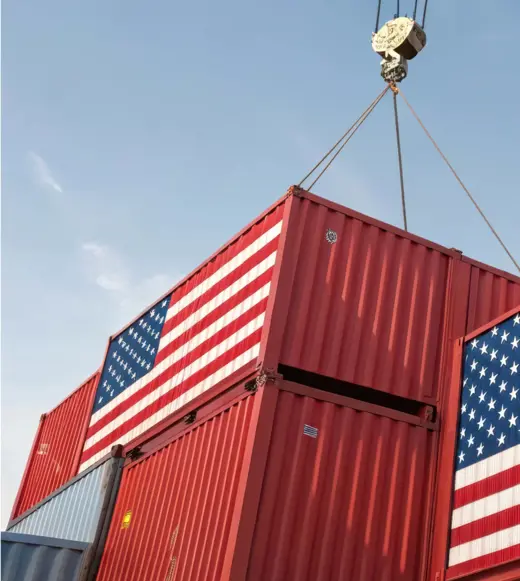For decades London, Zurich, Monaco, and Geneva have been the gravitational hubs for European family offices, the required bases for structuring, deal access, co-investments, and access to deep financial markets. But the power is shifting. Dubai and Abu Dhabi are no longer peripheral outposts; they are now attracting family offices seeking tax neutrality, privacy, and connectivity to growth markets.
The UAE has become one of the fastest growing hubs for family offices globally and will welcome a net inflow of 9,800 millionaires this year, with Indian families forming the largest contingent. In 2025 alone, more than 200 new family offices have set up in Dubai, representing over 20 percent of all global establishments. Dubai now hosts over 800 family offices: that’s over 10% of all global family offices. While Dubai attracts a growing share of global family offices, high-profile investors such as Ray Dalio and Leon Black, together with regional dynasties like Nassef Sawiris, have added offices in Abu Dhabi.
Countries like Italy have taken proactive steps to attract ultra-high-net-worth individuals and family offices by offering advantageous tax incentives, such as flat tax regimes and inheritance tax exemptions. These measures appear to be working, with notable figures like Richard Gnodde, Nassef Sawiris, and Frédéric Arnault among those drawn to the opportunity.
Entrepreneur-led Gulf family offices face steep challenges in establishing governance frameworks, constructing resilient portfolios, and accessing quality managers and deal flow.
For European family offices, this is not just a story about where others are moving. It raises a sharper question: how do London or Geneva-based families remain ahead in a world where capital is increasingly being allocated from new regimes?
Tomorrow’s syndicate partners, co-investors, and competitors for fund allocations may no longer be confined to Mayfair circles but include newly established Indian families operating out of Dubai. In this changing landscape, Dubai and Mayfair will collaborate as peers, where global connectivity and strategic partnerships are no longer optional but imperative.
The UAE advantage: governance meets innovation
Part of the UAE’s allure lies in regulatory innovation. Both Dubai’s and Abu Dhabi’s regimes have advanced to operate as internationally acknowledged common jurisdictions, offering families tools such as trusts, foundations, and Restricted Scope Companies. This combines global best practices with local flexibility, allowing families to balance succession planning, asset protection and privacy.
European family offices are unlikely to decamp wholesale, but they are already encountering counterparties, fund managers, and peers whose governance models are now anchored in these Gulf structures. Understanding how they work and how they may affect cross-border investments is becoming an essential skill to navigate.
Innovation edge: The digital gulf
Another differentiator is digital readiness. Abu Dhabi’s Virtual Asset Framework and Dubai’s Crypto Token Regime have provided clarity and encouragement for digital assets attracting over $30 billion into the UAE in 2024.
Family offices led by younger, digitally fluent principals are drawn to these regimes. They see them not just as safe havens for digital wealth but as a home for venture-style opportunities in AI, blockchain, and tokenisation platforms.
For European family offices, this raises two challenges. First, staying connected to emerging trends in digital assets originating from Dubai. Second, ensuring governance and infrastructure can accommodate exposure to tokenised and digital assets, while still meeting fiduciary standards at home.
Alternatives ascendancy: The new core of family office portfolios
Just as wealth is migrating towards new hubs in the Gulf, portfolios are migrating towards alternatives. For many of the newest families, particularly first-generation entrepreneurs, alternatives feel more familiar than bonds; building companies, experience with private equity buy-outs, private credit, hedge funds, venture or backing early-stage tech innovation mirrors the wealth creation journey they know best.
This trend is not about chasing higher returns alone. Families are turning to alternatives to diversify risk premia exposure, gain insulation from volatile public markets, and exercise influence over assets aligned with their values or historical sectors of wealth creation. But alternatives also bring complexity; unlike traditional assets, they require expert knowledge and robust infrastructure.
Scaling complexity: how family offices can master alternatives
As allocations rise, family offices face a scale challenge: how to execute with the same discipline as institutional investors while retaining the agility that defines them. The demands are clear:
- Governance models aligned with fiduciary standards and family goals
- Manager selection and due diligence frameworks that are rigorous, repeatable, and scalable
- Execution platforms capable of handling capital calls, reporting, and cross-border compliance
- Infrastructure integrating portfolio management, risk analytics, and performance drivers
Few families have the capacity or desire to build the infrastructure required to manage alternative investments at scale. As portfolios become more global and complex, many are turning to external partners for access to platforms, expertise, and oversight that can support the effective management of alternatives across geographies. Apex Investment Advisory is well positioned to help with these services.
From legacy to leadership: the family office pivot
New private markets and the growth of family offices represent more than a geographic reshuffling. They mark a structural reorientation of global wealth, where innovation, adaptability, and cross-border collaboration outweigh legacy or location. Family offices that hesitate risk being outpaced. Those that have the ability to pivot with markets are disciplined enough to govern like institutions, and bold enough to invest across private markets’ full opportunity set will likely excel.
Apex Investment Advisory
We deliver independent, strategic investment advice to a global client base and currently advise on $125 billion of assets. We work with a range of institutional investors, from pension funds and family offices to sovereign entities and private banks. With industry renowned leadership in alternatives and private markets, our tailored solutions span private equity, credit, infrastructure, hedge funds, real assets, and even tokenised strategies.
Our Advisory offering:
- Strategy reviews and portfolio construction
- Investment and operational due diligence
- Manager selection
- Portfolio monitoring and measurement
References
Abu Dhabi Global Market (ADGM) (n.d.) Official website.
Available at: https://www.adgm.com/
DIFC (n.d.) Structures.
Available at: https://landing.difc.ae/structures
Economic Times ‘Souk, stocks and succession planning: growth of family offices in Dubai’. The Economic Times.
Available at: https://economictimes.indiatimes.com/news/international/uae/souk-stocks-and-succession-planning-growth-of-family-offices-in-dubai/articleshow/118536603.cms
Ernst & Young and Julius Baer The Indian family office playbook.
Available at: https://www.ey.com/content/dam/ey-unified-site/ey-com/en-in/insights/family-office/ey-the-indian-office-playbook-digital.pdf
Financial Times ‘[Article title not specified]’. Financial Times.
Available at: https://www.ft.com/content/0a24be5e-395e-43db-a91f-4b4f02d99f1a
Forbes ‘What does a family office in the Middle East look like’. Forbes.
Available at: https://www.forbes.com/sites/paulwestall/2024/02/28/what-does-a-family-office-in-the-middle-east-look-like/
India Brand Equity Foundation (IBEF) India-UAE trade.
Available at: https://ibef.org/indian-exports/india-uae-trade
Henley & Partners Henley private wealth migration report 2025.
Available at: https://www.henleyglobal.com/publications/henley-private-wealth-migration-report-2025







